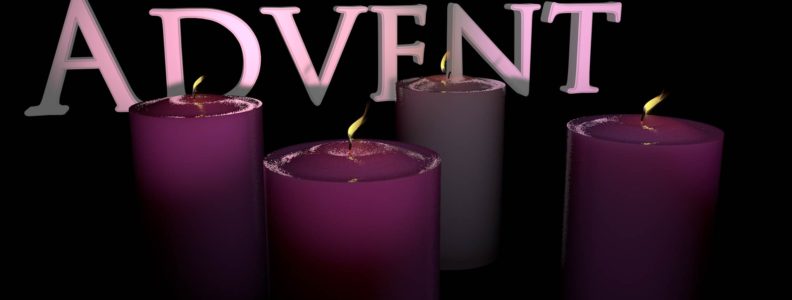I did not grow up celebrating the season of advent. I had no idea what it was or that it was even on the church calendar until about 20 years ago. What is it anyway? Should Christians celebrate it?
Advent is the season of the year leading up to Christmas. It is observed with various traditions and rituals by Catholics and other liturgical groups such as Lutherans, Anglicans, and Methodists. In recent years, Advent celebrations of one type or another have been added to many evangelical services as well.
The word advent itself means “arrival” or “an appearing or coming into place.” Christians often speak of Christ’s “first advent” and “second advent”; that is, His first and second comings to earth. His first advent would be the Incarnation—Christmastime.
The Advent season lasts for four Sundays. It begins on the fourth Sunday before Christmas, or the nearest Sunday to November 30. Advent ends on Christmas Eve and thus is not considered part of the Christmas season. The Advent celebration is both a commemoration of Christ’s first coming and an anticipation of His second coming. As Israel longed for their Messiah to come, so Christians long for their Savior to come again.
Should Christians observe Advent? This is a matter of personal conviction. Here is the biblical principle: “One person considers one day more sacred than another; another considers every day alike. Each of them should be fully convinced in their own mind. Whoever regards one day as special does so to the Lord” (Romans 14:5–6).
Churches that observe Advent usually decorate their sanctuaries in the liturgical color of Advent, purple (or in some cases royal blue). Some churches change the color to rose on the third or fourth Sunday of Advent to signify a greater emphasis on the joy of the season.
One of the most common Advent traditions involves the use of evergreen wreaths, branches, and trees. On the first Sunday of Advent, churches and homes are decorated with green to symbolize the eternal life that Jesus brings. An Advent wreath—an evergreen circle with four colored candles surrounding a white one in the middle—is placed in a prominent spot. The candles are then lighted one at a time, on successive Sundays. The first candle is the candle of “hope” or “expectation.” The three remaining candles on the perimeter are given various meanings depending on the church. On Christmas Eve or Christmas Day, the center white candle is lighted; this is the “Christ Candle,” a reminder that Jesus, the Light of the Word, has come.
Advent calendars, used to count down the days till Christmas, are popular in many homes. An Advent calendar contains a number of covered “windows” that are opened, one a day, until Christmas Day. Each open window reveals a picture related to the season or a poem or a Bible verse or a treat of some kind. Many parents find that an Advent calendar is a good way to teach their children the true meaning of Christmas—although there are secular versions of the calendars, too.
Should Christians observe Advent? This is a matter of personal conviction. Here is the biblical principle: “One person considers one day more sacred than another; another considers every day alike. Each of them should be fully convinced in their own mind. Whoever regards one day as special does so to the Lord” (Romans 14:5–6).
There is certainly nothing wrong with commemorating Jesus’ birth and anticipating His return—such commemoration and anticipation should be an everyday part of our lives. Are Christians required to observe Advent? No. Does observing Advent make one a better Christian or more acceptable to God? No. Can celebrating Advent be a good reminder of what the season is truly all about? Yes, and therein lies its greatest value.
Messages on Advent
Dr RC Sproul has a great teaching series on Advent titled “The Messiah is Born”. Click on the title link to listen.
“In this series, R.C. Sproul examines various themes that we must consider when we look at the first advent of Christ. Dr. Sproul discusses Mary’s role in the nativity and the necessity of Christ’s birth for our redemption, reminding us that the glory of God seen in the birth of Jesus will be seen again at His second coming.”
Pastor Alistair Begg has a teaching on Advent titled “The Purpose of Advent” Click on title to listen.
Soli Deo Gloria!
